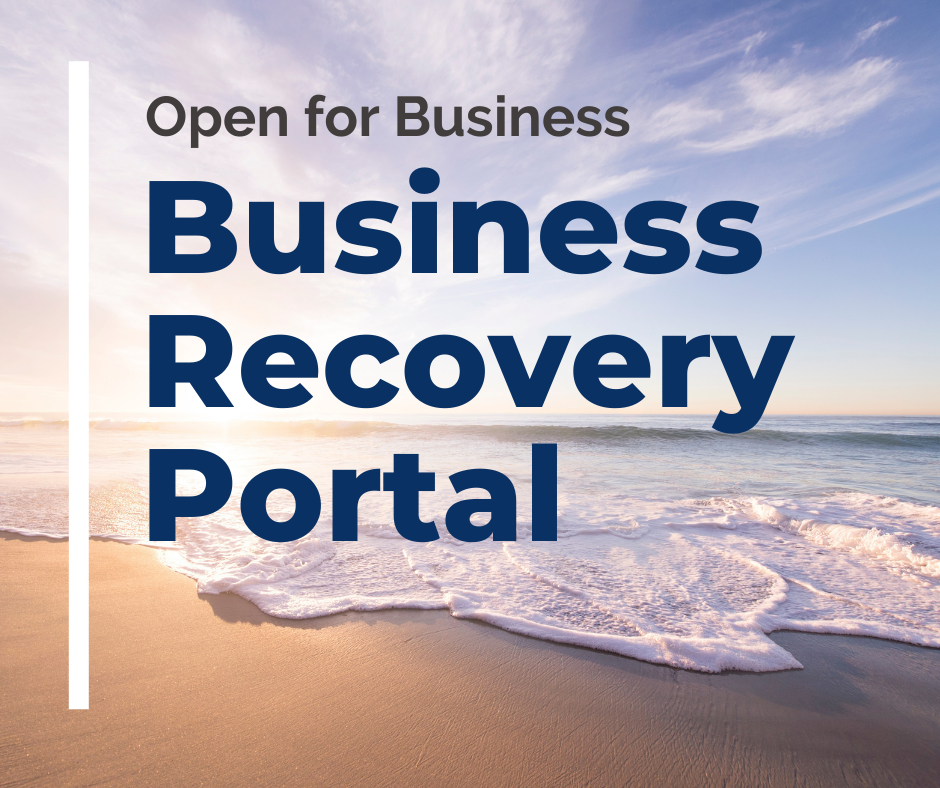| Ontario Provincial Cannabis Act |
|
In November 2017, the Ontario government introduced its own Cannabis Act which will regulate the sale, possession and distribution of cannabis for recreational purposes throughout the province. The Province of Ontario has elected to allow recreational cannabis to be sold on-line through the Ontario Cannabis Store and in privately operated retail stores. Under the control of the Alcohol and Gaming Commission of Ontario this private retail model will launch April 1, 2019.
Please continue to check Province of Ontario’s Cannabis Legalization or the Alcohol and Gaming Commission of Ontario websites for all current information.
Visit the AGCO website for more information including
|
| What are the short-term effects of cannabis use? |
|
Everyone's response to cannabis differs and can vary from one time to the next.
When cannabis is used, it can:
- Impair your ability to drive safely or operate equipment
- Cannabis can cause drowsiness, slow reaction times, lower your ability to pay attention and impair coordination Using cannabis and then driving or operating equipment can result in an accident, serious injuries or death.
- Make it harder to learn and remember things
- Cannabis can impair your thinking, concentration, memory and decision-making, and can impact your ability to perform well on the job or at school.
- Affect your mental health
- Though cannabis can cause euphoria (a 'high') it can also cause anxiety or panic.
- In rare cases, cannabis can trigger a psychotic episode (not knowing what is real, experiencing paranoia, having disorganized thoughts and, in some cases, hallucinating).
|
| What are the long-term effects of cannabis use? |
|
Using cannabis frequently (daily or almost daily) and over a long time (several months or years) can:
- Hurt your lungs and make it harder to breathe, if smoked
- Cannabis smoke contains many of the same harmful chemicals found in tobacco smoke.
- Affect your mental health
- Frequent use of THC over a long time increases the risk of cannabis dependence, also called:
- addiction
- cannabis use disorder
- problematic cannabis use
- It is also associated with an increased risk of developing or worsening disorders related to anxiety and depression.
- Using products with higher levels of THC (20% THC [200 mg/g] or more) such as resin, hash oil, wax and distillates further increases the risk of mental health problems over time.
- Stopping or reducing your cannabis use can improve your mental health.
|
|
The effects of cannabis on pregnancy and breastfeeding
|
|
Avoid cannabis completely if you are pregnant or breastfeeding. Substances in cannabis are transferred from the mother to child and can harm your unborn or newborn baby.
There may also be other health risks associated with cannabis use during pregnancy and breastfeeding.
If you have questions, visit your health care provider.
|
|
Cannabis for medical purposes
|
|
Some people use cannabis for their health problems. Deciding if cannabis is appropriate to treat your symptoms is best done in discussion with a health care provider.
To help you and your health care provider make informed decisions about the potential benefits and risks. See, using cannabis for medical purposes.
|
| What are the known benefits of using cannabis? |
|
There is some evidence of potential therapeutic uses for cannabis or its component chemicals (cannabinoids) and many Canadians report using cannabis for medical purposes for health problems such as chronic pain, nausea/vomiting associated with cancer chemotherapy, and spasticity with multiple sclerosis. While cannabis can be used by some people for their health problems, determining whether cannabis is appropriate to treat an individual’s symptoms is best made through a discussion with a health care practitioner.
Health Canada has information for health care professionals and for authorized patients on the use of cannabis and cannabinoids for medical purposes. This includes information on potential therapeutic uses, dosing, warnings, and adverse effects. For more information, please visit their Accessing cannabis for medical purposes page.
|
| What are the effects of cannabis second hand smoke? |
| Any kind of smoke is harmful. In fact, studies have shown that cannabis smoke contains many of the same harmful substances as tobacco smoke. Like smoking cigarettes, smoking cannabis can damage your lungs and can cause bronchitis-like symptoms, coughing and wheezing which can, for example, affect athletic performance. While the effects of second hand smoke from tobacco are well known, more research is needed to better understand the health effects of second hand smoke from cannabis. |
| Can you drive while high? |
|
Drug-impaired driving is dangerous
There's a lot going on around you when you drive. You need to be totally focused so that if a split-second – and potentially life-saving – decision needs to be made, you're ready for it.
Drugs affect your ability to react and increase the chance of a crash. Don't get behind the wheel or get in a car with an impaired driver — it's just not worth the risk.
It is illegal to drive impaired
Drug-impaired driving can put you, your passengers and anyone sharing the road with you in danger — and for that reason, it’s a serious criminal offense that can result in heavy fines and jail time. Don’t risk a criminal record. Understand the legal consequences of driving high and do your part to plan ahead so you can get home safely.
|
| How is the government going to prevent driving high like they do driving drunk? |
| Impaired driving by a drug and/or alcohol is illegal in Canada and will remain so after cannabis is legalized. Police are already able to test for drug-impaired driving using Standard Field Sobriety Tests (SFST) and through the use of Drug Recognition Experts (DRE).
On June 21, 2018, new legislation designed to strengthen impaired driving laws came into force. These new laws make it easier for police officers to detect drug-impaired driving. For example, law enforcement will be able to use an oral fluid drug screening device (once approved by the Attorney General of Canada) to test drivers for drug impairment.
Additionally, the federal government launched the nationwide Don't Drive High campaign, which aims to educate Canadians about the safety and legal risks of drug-impaired driving.
In Ontario, police have tools and tests to detect impaired drivers, including roadside drug screening equipment and sobriety tests.
If a police officer finds that you are impaired by any drug or alcohol, you will face serious penalties, including:
- an immediate licence suspension
- financial penalties
- possible vehicle impoundment
- possible criminal record
- possible jail time
Learn more about Ontario’s drug-impaired driving penalties.
|
|
How to avoid impaired driving
|
|
Impairment from cannabis begins almost immediately and can last up to 6 hours or more, depending on factors such as THC levels and how it is consumed. The effects can last longer if you’re a new user, have consumed a lot or have combined cannabis with alcohol.
Since the effects of cannabis vary, there is no way to know exactly how long to wait before it’s safe to drive. Even if you think the high has worn off, your ability to drive may still be impaired.
The best way to avoid impaired driving is to not take a chance. Plan another way home:
- have a designated driver
- use public transit
- call a friend or family member for a ride
- call a taxi or ride share
- stay overnight
|
| How can I help a friend who is addicted to cannabis? |
|
There is no script for talking with your friend about cannabis addiction and it may be difficult to try to convince him or her to stop using cannabis. You can start by encouraging your friend to compare his or her current life situation to how they were when they limited their cannabis use. They might admit that they felt healthier, happier, and more productive.
When someone experiences problematic substance use (including cannabis), it is very important that they seek help. Many resources are available to answer questions, offer advice or give hands-on help. Our Get help with problematic substance use page contains a list of organizations that can offer your friend some assistance. Help is available across Canada. You can help your friend by preparing a list of organizations that are located in your area, with their websites and phone numbers.
|
| Can you smoke or vape cannabis for a medical purpose in an enclosed workplace? |
| No. Like tobacco, Ontario prohibits smoking or vaping cannabis for a medical or recreational purpose in enclosed workplaces. Employers may have a duty to accommodate employees who smoke or vape cannabis for a medical purpose related to a disability by allowing them breaks to go outside to spaces where smoking or vaping is permitted by law. |
|
Do I have to show medical authorization for cannabis use or disclose the nature of my disability?
|
|
An individual seeking accommodation in the workplace may need to provide medical or other information to support a disability-related need, but also has a right to privacy as much as possible.
An organization does not generally have the right to know the nature of the person’s disability or their treatment. However, a doctor’s note verifying that cannabis use related to a disability is not interfering with fitness for work or other duties might be necessary for accommodation in some situations, particularly in safety-sensitive environments.
Medical or other information might also be necessary to support accommodation needs when cannabis use negatively affects people with other disabilities.
Everyone is expected to cooperate in the accommodation process.
|
|
What if an employee is unable to ask for accommodation?
|
|
Some employees may be reluctant or unable to recognize or disclose that they have disability-related accommodation needs.
Employers have a duty to inquire where an employee is clearly unwell and is known to have, or perceived to have, disability needs related to cannabis use for a medical purpose or cannabis addiction. However, an organization might not be expected to accommodate a disability-related need if the person does not participate in the accommodation process.
|
|
Can an employer insist on a drug test for cannabis in safety-sensitive positions?
|
|
It depends. An employee drug-testing program might be justified for safety-sensitive positions in some circumstances. Drug tests typically screen for cannabis.
Drug testing has particular human rights implications and must be designed in a way that makes sure testing does not discriminate against people who use cannabis for a medical purpose related to a disability, or who have, or are perceived to have, a cannabis-related addiction disability.
Employers can drug test for cause, for post-incident or post-reinstatement situations. Random testing might be permissible under the Code if employees are in safety-sensitive positions, staff supervision is minimal or non-existent, and there is evidence of risk in the particular workplace such as a general problem with substance abuse.
The technique used to test for drugs must be highly accurate, able to measure impairment at the time of the test, minimally intrusive and provide rapid results. It is more difficult to measure impairment through drug testing. To date, the scientific research has not confirmed that a method of drug testing exists that is analogous to the alcohol breathalyzer in meeting this criteria.
Employers have a duty to accommodate the needs of people with disabilities who test positive for drugs, to the point of undue hardship. See the OHRC’s Policy on drug and alcohol testing for more information.
|
|
Can an employee be fired for using cannabis at work, failing a drug test, or refusing to ask for help?
|
| Employers should offer assistance and accommodation before imposing consequences when an employee is unable to do the essential duties of their job, they come to work impaired, or they fail a drug test, due to cannabis use for a medical purpose related to a disability, or due to cannabis addiction.
Workplace policies that automatically discipline people for not coming forward and disclosing cannabis use for a medical purpose or cannabis addiction may be discriminatory.
Employers should routinely inform employees who work in safety-sensitive positions about the need to disclose if they are using a drug that could lead to on-the-job impairment and to ask for disability-related accommodation before harmful incidents happen.
Employees who use cannabis for a medical purpose, or have a cannabis addiction, should discuss with a doctor any concerns about fitness for work and negative effects on workplace health and safety or performance of essential duties.
|
| Can residents smoke cannabis in their apartment or condo unit? |
|
Generally yes. People can smoke, vape or consume edible cannabis in their residential units and balcony or terrace either for medical or recreational purposes, except where laws or rules prohibit smoking or vaping cannabis and tobacco for public health reasons. Ontario prohibits smoking or vaping cannabis for either purpose in common areas of apartment and condo buildings.
Residents can consume edible cannabis for a medical purpose related to a disability anywhere on the premises of their residential building.
|
|
What happens if cannabis smoke from other units affects people with disabilities like asthma?
|
|
Smoke or vapour from recreational or medical cannabis might negatively affect other building residents, including people with chemical sensitivities and other disabilities.
Housing providers have a legal duty to look for solutions and accommodate the disability-related needs of people who use cannabis for a medical purpose related to a disability, as well as of other people with disabilities who are affected by cannabis smoke or vapour, unless it would cause undue hardship.
All parties have an obligation to cooperate in the process of finding solutions.
|
|
Can a landlord or condo board ban smoking in residential units, balconies and terraces?
|
|
Yes. There are no laws against banning cannabis smoking or vaping in units, balconies or terraces.
However, a housing provider would still have a duty to accommodate a person who smokes or vapes cannabis for a medical purpose related to a disability, unless it would cause undue hardship.
A rule that permits residents to smoke or vape tobacco in their units and balconies but prohibits cannabis use for a medical purpose related to a disability might violate the Code.
|
|
Can people who live in a retirement or long-term care home or psychiatric facility smoke or vape cannabis for a medical purpose in their units?
|
|
No. People living in these types of residential institutions cannot smoke or vape medical or recreational cannabis in their units.
Ontario allows, but does not require, a separate common room for smoking or vaping cannabis or tobacco in these types of residential institutions. The room must be constructed and ventilated in accordance with government regulations.
Residents in these types of institutions can consume edible cannabis for a medical or recreational purpose anywhere on the premises.
|
|
Can people smoke, vape or use edible cannabis for a medical purpose in a hotel room?
|
| Yes. Similar to tobacco, people can smoke or vape cannabis for a medical or recreational purpose but only in guest rooms designated by the hotel, motel or inn. The guest room must conform to any prescribed government regulations including the posting of signage. People can consume edible cannabis for a medical purpose related to a disability anywhere on the premises. |
|
Can children and youth smoke, vape or consume cannabis for a medical purpose?
|
| Yes, but only if a doctor authorizes cannabis use for a medical purpose for a child or youth in accordance with professional medical standards. |
|
Can students use cannabis for a medical purpose at school?
|
| Ontario prohibits smoking or vaping cannabis for a medical or recreational purpose anywhere on school premises. Students can consume cannabis for a medical purpose related to a disability in edible form while at school. |
|
Can people smoke or vape cannabis for a medical purpose in a restaurant, retail store, mall or other service centre?
|
|
No. Like tobacco, Ontario prohibits smoking or vaping cannabis for a medical or recreational purpose in enclosed public places like restaurants, retail stores, malls or other service centres.
People can carry cannabis and consume edible cannabis for a medical purpose related to a disability in enclosed public places.
|
|
Can people smoke cannabis for a medical purpose outside in public spaces like in a park or on a sidewalk?
|
|
Yes. People can use cannabis for a medical or recreational purpose in many outdoor public places, except where laws or rules prohibit smoking or vaping cannabis and tobacco for public health reasons.
People can carry cannabis and consume edible cannabis for a medical purpose related to a disability in outdoor public places.
|
|
Can I use cannabis on municipal property in Wasaga Beach?
|
|
Town of Wasaga Beach Smoking By-law
According to Section 3.1 of the Municipal Property Smoking By-law, no person shall smoke or vaporize on or within any property owned or leased by the Municipality, including the following:
- Any property upon which is located a Municipal Building;
- Any municipal trail or Walkway;
- Any Park located within the Municipality or within a 20 metre radius of the perimeter of such areas;
- All Playground Areas, or within a 20 metre radius of the perimeter of Playground areas;
- All Outdoor Recreational Facilities or within a 20 metre radius of the perimeter an Outdoor Recreational Facility;
- Within a Special Event
Exemptions
- Smoking/vaporizing in a privately-owned property that is primarily a private dwelling;
- Smoking/vaporizing on any portion of a Highway
- Smoking/vaporizing in a designated smoking/vaporizing area for the following sites:
- Fire Station 1 (except designated parking areas that are within 20 meters of an entrance to a Municipal Building);
- Fire Station 2 (except designated parking areas that are within 20 meters of an entrance to a Municipal Building);
- Public Works (except designated parking areas that are within 20 meters of an entrance to a Municipal Building);
- Sports Park (except designated parking areas that are within 20 meters of an Outdoor Recreational Facility);
- Town Hall (except designated parking areas that are within 20 meters of a Park, Outdoor Recreational Facility or an entrance to a Municipal Building); and
- Wasaga Distribution (except designated parking areas that are within 20 meters of an entrance to a Municipal Building).
- That is entitled to possess Cannabis for medical purposes pursuant to a medical document issued pursuant to the Cannabis Regulations, SOR/2018-144 promulgated under the Controlled Drugs and Substances Act (Canada) S.C. 1996, c. 19, or successor legislation or regulations made thereunder, if the said person is smoking/vaporizing Cannabis more than 20 meters of:
- An entrance and/or exit to a Municipal Building; 5
- Any point on the perimeter of a municipal trail, Walkway, Park, Playground Area, and Outdoor Recreational Facility.
|
| Can I use cannabis on provincial property in Wasaga Beach including the beachfront? |
|
The federal Cannabis Act as well as Ontario’s Smoke-Free Ontario Act, 2017 and the Cannabis Control Act, 2017 regulate the possession and use of recreational cannabis in Ontario, including in provincial parks.
Smoking or vaping cannabis is prohibited in the same areas where smoking tobacco is prohibited.
Smoking tobacco or cannabis, or using an electronic cigarette to vape any substance (including cannabis) is not permitted in certain areas of provincial parks, including:
- Enclosed public places, including washrooms;
- Sheltered areas with a roof and more than two walls;
- Children’s playgrounds and 20 m from the perimeter of the playground; and
- Sporting areas, such as volleyball and beach volleyball areas, designated swimming areas, baseball diamonds, soccer fields, and adjacent spectator areas, as well as 20 m from the perimeter of the sporting or spectator areas. This includes 20 m from the water's edge along the beachfront.
You cannot consume cannabis in any manner in a vehicle or boat (including a canoe, kayak, paddleboard, etc.) that is being driven or under someone’s care or control.
If the provincial park you are visiting is located within a fire region, you cannot smoke while walking in a forest area from April 1 to October 31 each year.
|
|
When was cannabis retail allowed in Wasaga Beach
|
|
At its meeting on December 22, 2020, Council made a decision to provide a Notice to the Registrar (of the Alcohol and Gaming Commission of Ontario) that the Town of Wasaga Beach has chosen to "opt-in" to the retail sale of recreational cannabis. The licensing of retail sales outlets will be done by the AGCO on behalf of the Province of Ontario.
|
|
Why did Wasaga Beach decide to allow cannabis retail?
|
|
The focus for the town is on shaping an economic landscape that facilitates the creation of a complete, robust and sustainable community. This involves providing development opportunities for new and existing residents, visitors, entrepreneurs and developers. These opportunities support jobs, infrastructure, servicing, and further development in Wasaga Beach.
|
|
What public consultation took place in Wasaga Beach prior to allowing cannabis retail?
|
|
In the Fall of 2020, the Town released an engagement survey to our community asking whether they supported the idea of Wasaga Beach opting-in and allowing cannabis retail.
The response from the public was overwhelmingly in favour of the decision with nearly 75% showing support. See survey data here.
|
|
Can the municipality dictate where retailers can locate in the community?
|
|
In short, the AGCO is solely responsible for approving retail locations from store applications.
The municipality has no control over where cannabis retailers can locate in the community with the exception of existing zoning policies that govern where any commercial business can locate. In addition, the Town has shared with the AGCO a Municipal Policy Statement which outlines additional site considerations for the AGCO.
As well, the AGCO will consider comments received during the 15-day public notice period on any particular store application.
In the long-term, free market forces will govern which stores are supported sustainably, similar to other types of retail and service establishments in the community.
|
|
Can the municipality dictate how many retailers can locate in the community?
|
|
In short, the AGCO is solely responsible for approving how many retail locations can open in a particular community. The municipality has no control on this matter.
In the long-term, free market forces will govern which stores are supported sustainably, similar to other types of retail and service establishments in the community.
|
|
Why are is there so much interest in cannabis stores opening in Wasaga Beach?
|
|
Cannabis is one of several emerging industries that are sweeping the province, particularly because there is a demand for the products and services and because it is legal. Wasaga Beach is very much recognized as a world-renowned tourist destination and that attracts investment.
The application process is time-consuming and can take 6-12 months between when operators apply and when they would be approved to open by the AGCO.
Until the AGCO authorizes a store, that store is just being proposed. There is a large investment that needs to be made from applicants and the process will (no pun intended) weed out weaker applicants before the end of the process. Prospective retailers must secure a site, prepare that site per the AGCO Registrar's Standards, secure supplies and prepare to market themselves to the public.
In the long-term, free market forces will govern which stores are supported sustainably, similar to other types of retail and service establishments in the community.
|
















